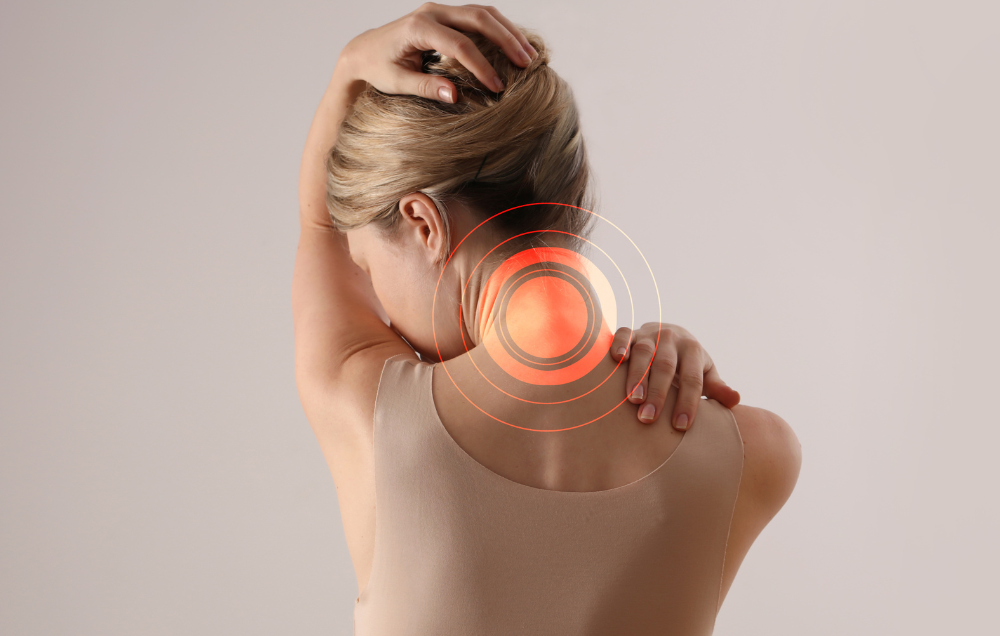Contents
Headaches are one of the most common medical complaints among people of all ages. They can be caused by environmental factors, injuries, infections, medications, and musculoskeletal issues like temporomandibular joint (TMJ) dysfunction. Headaches can even be linked to pain from other parts of the body, like neck and shoulder pain.
Some people are prone to frequent headaches. Over time, you may learn you have certain headache “triggers” like bright lights or food sensitivities. Primary headaches can follow patterns, like migraines, tension headaches and cluster headaches. However, you should talk to your doctor if frequent headaches are a new symptom for you.
Splitting headaches are unfortunately common, but they can be a sign of a larger problem. Keep reading to learn about potential causes of a splitting headache and what to do when you have one.
What can cause a splitting headache?
Plenty of environmental factors can cause severe headaches and migraines, from low air quality to noise, food sensitivities, certain fumes and vapors, and exposure to bright lights. Headaches can also be caused by disturbances to your system like stress, poor posture, head trauma, an infection or too much caffeine. Musculoskeletal issues, like TMJ dysfunction, structural abnormalities, neck pain and shoulder pain, can cause splitting headaches as well. When you’re not noticing other symptoms along with your headache, and if the pain isn’t too extreme, it should be safe to start with home treatments.
Headaches can be a secondary symptom of another issue, like high blood pressure, a spinal fluid leak, medication side effects or a structural abnormality. In cases like these, you’ll usually have a sudden onset with intense pain or other symptoms like a fever, confusion or shortness of breath. The next section lists some signals that your headache may be part of another problem.
When to seek immediate care
Severe headaches on their own, while debilitating, are most often something you can treat at home. However, if your headache doesn’t go away or if you start having headaches more than once a week, you should see your doctor.
Some serious conditions your doctor may want to rule out include:
- Substance withdrawal.
- Medication overuse.
- Traumatic injury.
- High blood pressure.
- A side effect of medication or other treatment.
- Spinal fluid leak.
- Trigeminal neuralgia (pain from the trigeminal nerve, which starts near the top of the ear and runs along the side of the face).
- Infection, like encephalitis or meningitis.
- Brain aneurysm.
- Stroke.
- Tumor.
- Structural abnormality of the head, neck or spine.
If you have certain “red flag” symptoms along with a splitting headache, you should seek medical attention. You may not have a serious condition, but it’s important to rule these things out with your doctor or emergency services.
Seek immediate medical care if you have any of these symptoms with a splitting headache:
- Sudden onset or severe pain.
- Fever.
- Vomiting.
- Sleepiness or loss of consciousness.
- Confusion.
- Shortness of breath.
- Stiff neck.
- Trouble walking.
- Seizure.
- Numbness or weakness on one side of your body.
- Vision loss.
What treatments can help relieve severe headaches?
To receive proper treatment for your headache, it’s a good idea to keep track of your symptoms in a journal or a day planner. You can start by tracking your pain episodes along with what you ate in the previous 24 hours and any changes in your routines, such as exercise or sleep. Medications, caffeine intake and alcohol use can all cause headaches — either from withdrawal or ingesting too much at one time.
The most effective treatment will depend on what’s causing your headache. Like headache triggers, these things can vary from person to person, too. Many people don’t realize that physical therapy can help with frequent headaches caused by musculoskeletal issues and some neurological conditions. At Lattimore Physical Therapy, we treat patients with TMJ dysfunction, neck pain, shoulder pain, certain structural abnormalities, vertigo, traumatic brain injury and more.
Try some of these remedies for moderate and severe headaches with no accompanying symptoms:
- Over-the-counter pain reliever — Take a nonsteroidal anti-inflammatory drug (NSAID) such as acetaminophen (Tylenol), ibuprofen (Advil, Motrin), naproxen (Aleve, Naprosyn) or aspirin.
- Rest and relaxation — Do breathing exercises or yoga to relax or get some rest in a dark, quiet room.
- Stay hydrated — Drink plenty of water. If your headache isn’t caused by too much caffeine, some caffeine from an herbal tea might help.
- Physical therapy — Manual therapy or gentle hands-on physical therapy techniques can help relieve headaches. Your PT can also help with some posture training, stretches or exercises to strengthen your neck and shoulders.
- Heat or ice therapy — Apply an ice pack or warm compress where it hurts. Ice helps with inflammation, and heat helps you relax and release tension.
- Massage — If you’re feeling tension in your shoulder or neck, try gently massaging the area.
Try physical therapy for splitting headaches at Lattimore PT
Frequent and severe headaches usually aren’t caused by a more serious issue. But they definitely can keep you from your responsibilities and the things you love to do. Be persistent in tracking your headache symptoms so you can share details with your doctor or physical therapist.
If you’ve ruled out other medical conditions and at-home treatments aren’t doing enough to manage your headaches, there is still hope for relief. A Lattimore PT physical therapist can work with you to uncover some insights into your unique symptoms. They’ll create a personalized treatment plan and help you find some go-to headache remedies you can do at home.
Ready for an initial assessment? Contact our team today for more information or to schedule an appointment.



